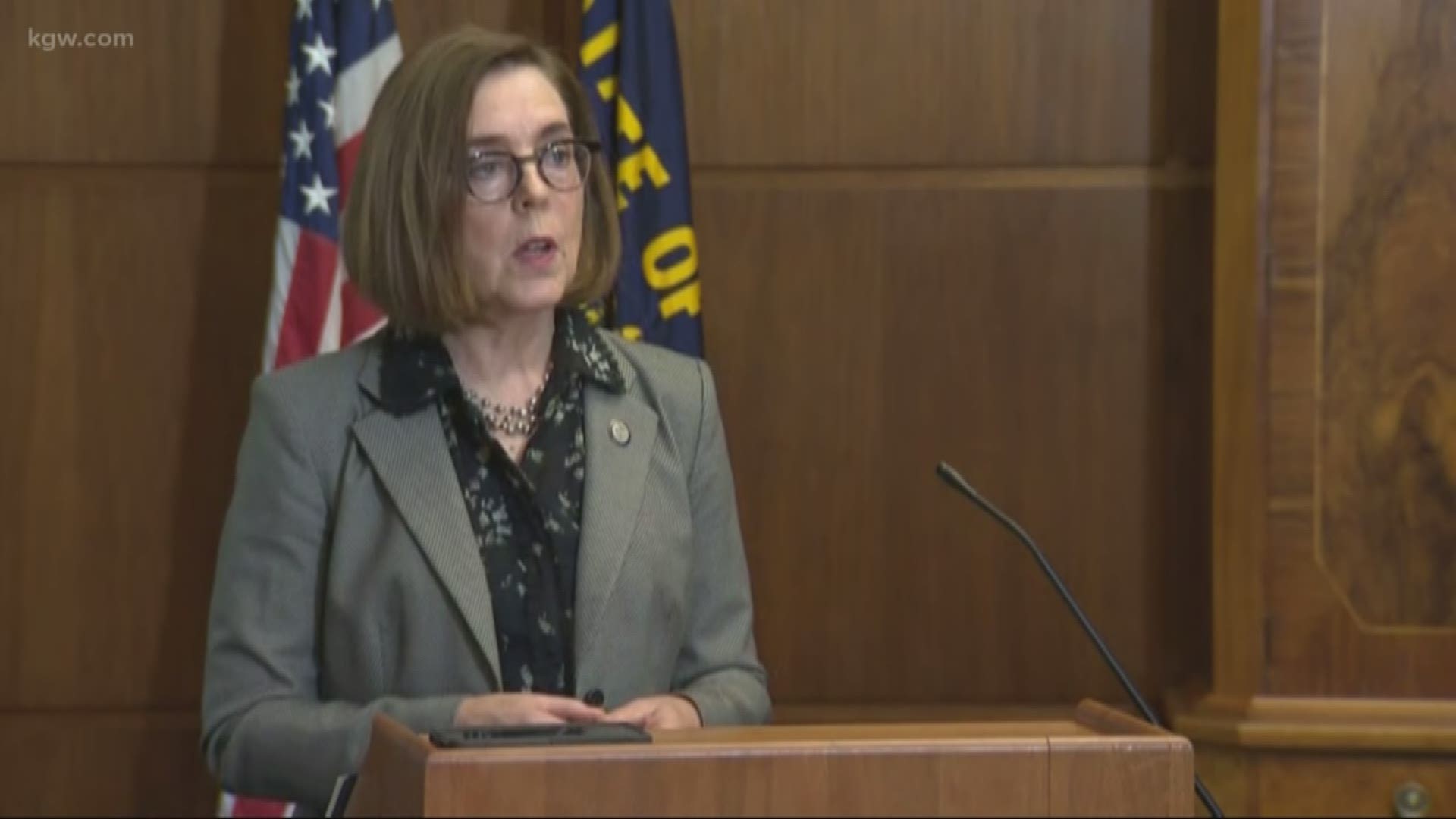SALEM, Ore. — Oregon Gov. Kate Brown said Monday that she's ready to use her executive power to lower carbon emissions following a political crisis in which Republican state senators fled the state for more than a week to thwart climate legislation.
The Democratic governor said she wants to move forward on a statewide cap and trade plan through the executive branch if lawmakers can't find a compromise. The proposal caps climate-changing emissions and requires businesses to buy or trade an ever-dwindling pool of pollution credits or "allowances."
The idea divided the Statehouse and revealed lingering tensions between liberal cities like Portland that want to combat climate change and rural areas of the state where the legislation was seen as a further threat to industries like farming, logging and trucking.
Brown says she wants lawmakers to go back to rural communities and find points of compromise for future legislation that would create the nation's second statewide cap and trade program, after California.
Senate Republicans walked out for nine days to delay a vote on the measure and only returned after receiving reassurances it was dead. They said the legislation would kill jobs, raise the cost of fuel and gut small businesses in rural areas.
Democrats say the legislation is critical to make Oregon a leader in the fight against climate change and will ultimately create jobs and transform the economy.
Despite the Republican walkout and death of HB 2020, the governor called the 2019 session successful at an historic level. Brown cited victories in campaign finance reform, and public education with the Student Success Act. She also mentioned housing reform and the passage of a family medical leave act that gives 12 weeks paid time off for any Oregon worker who has a baby, or has a serious medical problem, or for anyone caring for a family member with a serious medical problem.
Brown expressed frustration with Senate Republicans for the walkout over HB 2020, but also praised and thanked lawmakers from both sides for getting a lot accomplished this past weekend, to end the session.
The governor has 30 days to consider and sign or veto the remaining bills now on her desk.
KGW's Tim Gordon contributed to this report.

